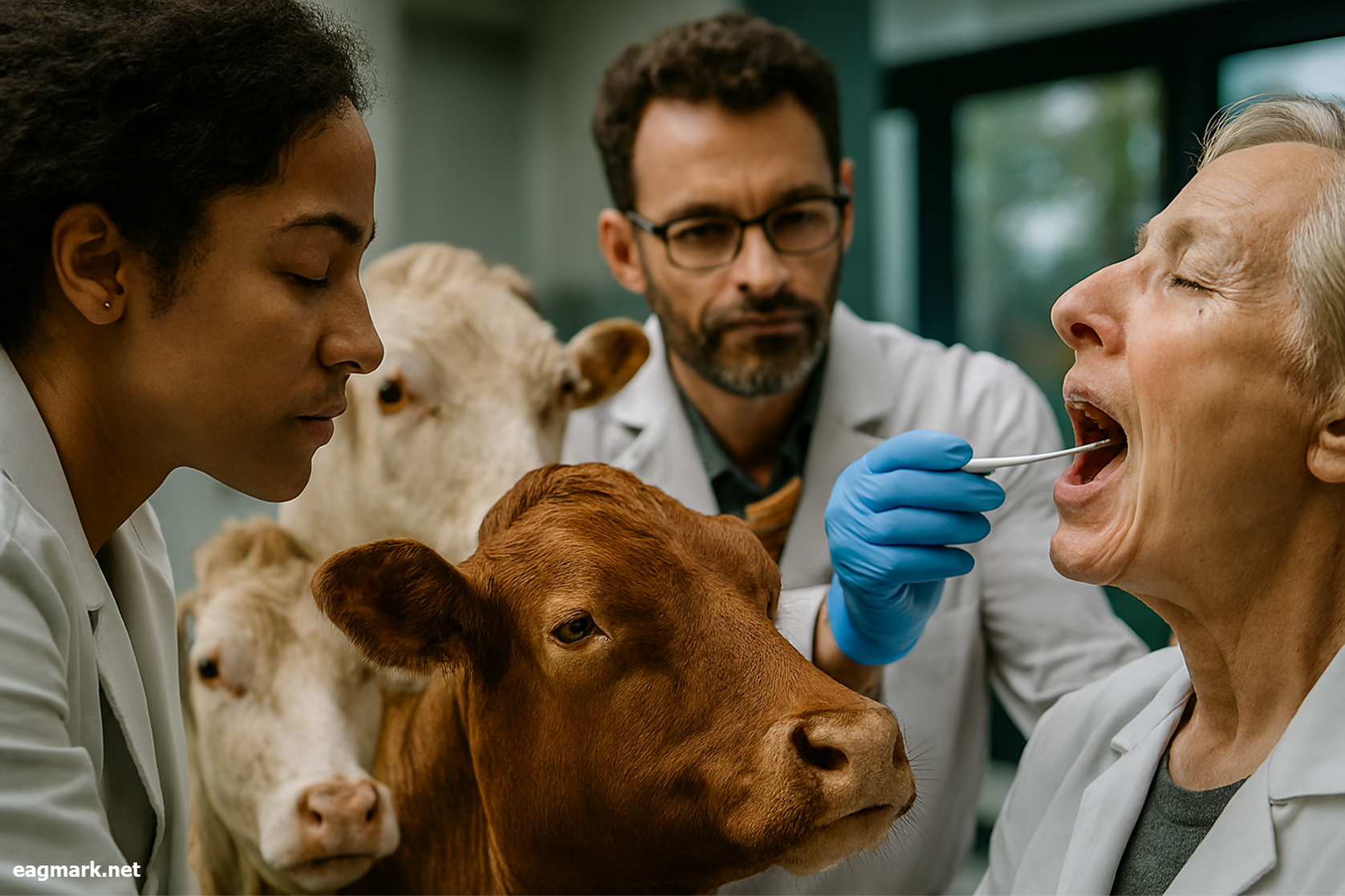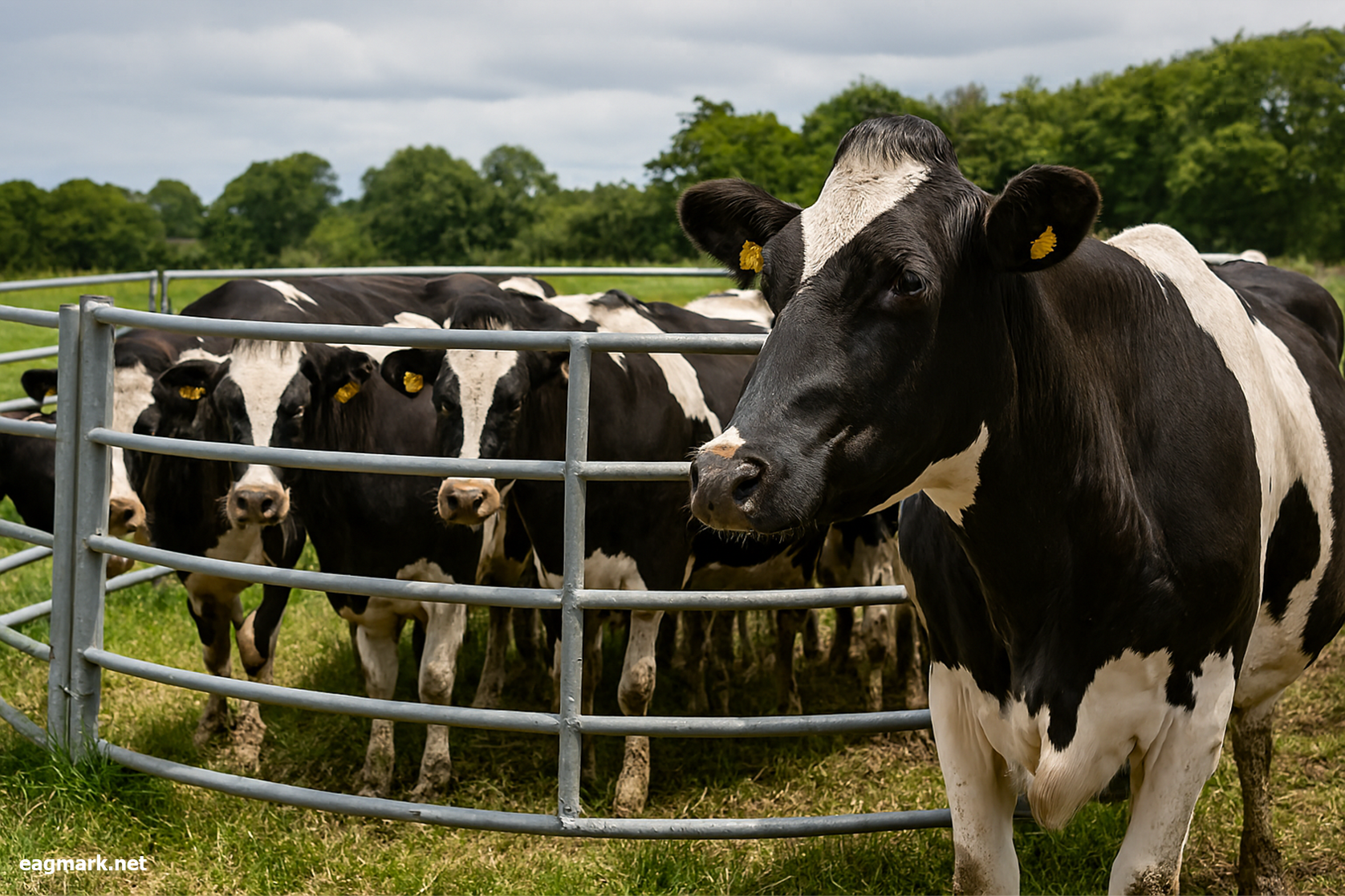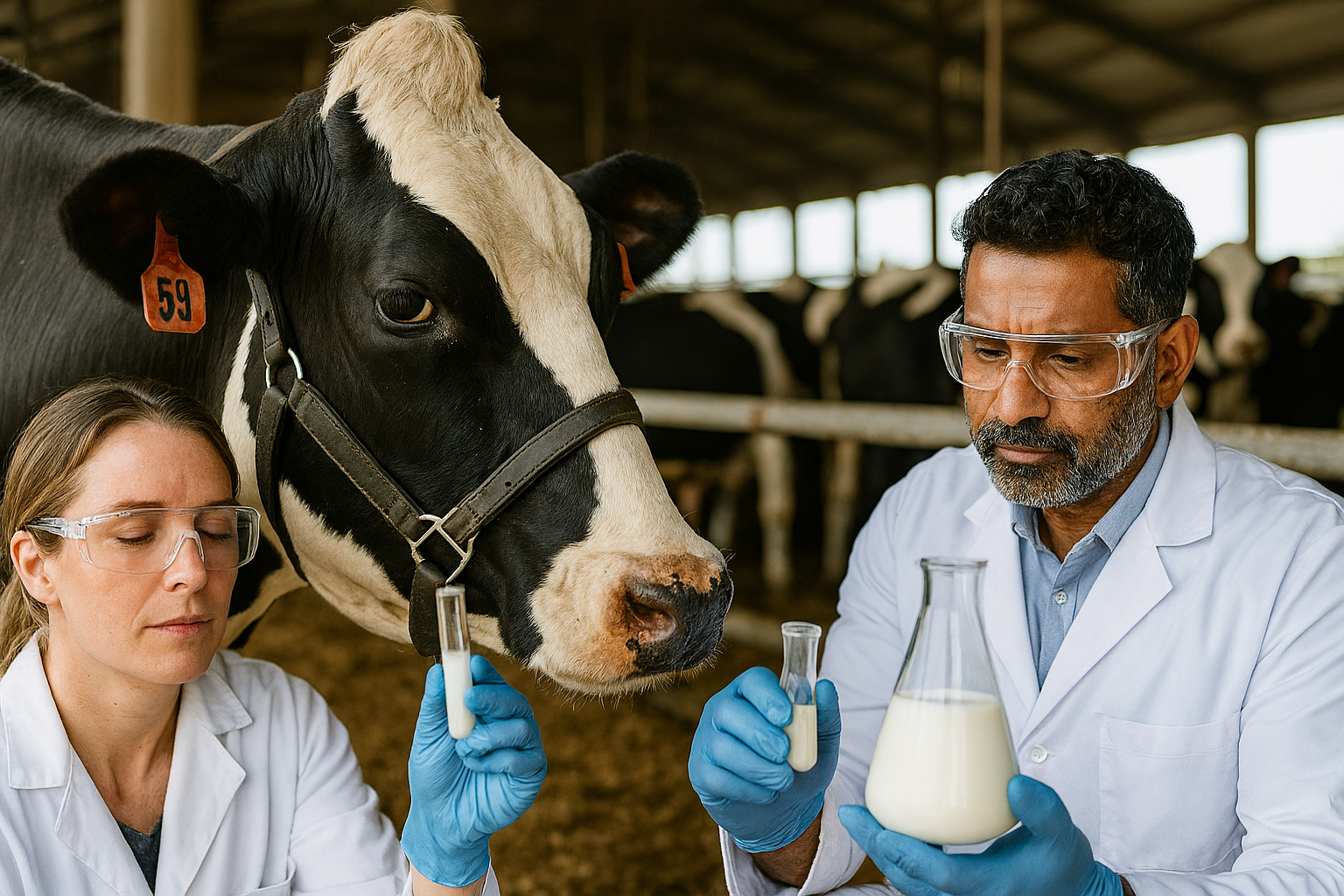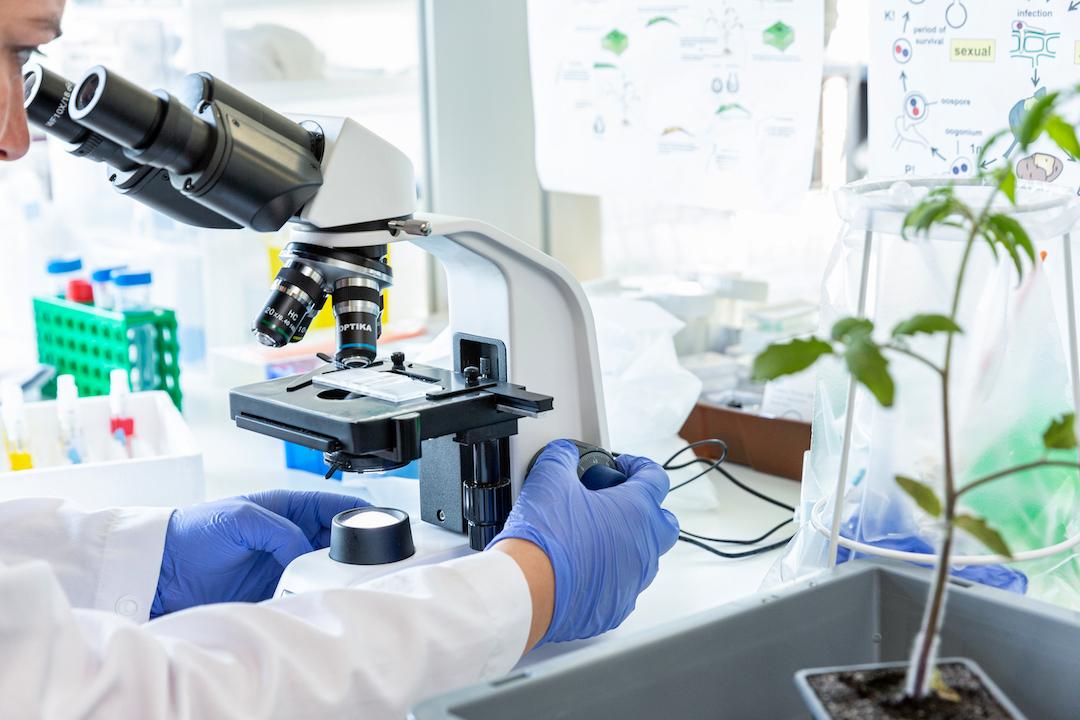
West Lafayette, Indiana — At Purdue University, a group of food science and animal science researchers are examining how gut microbiomes in both humans and livestock respond to diet—work that sits at the intersection of the One Health Initiative, which recognizes
the interconnected health of people, animals, and the environment.
Steve Lindemann, associate professor of food science and head of the Diet-Microbiome Interactions Laboratory at Purdue, focuses primarily on how dietary fiber affects the human gut microbiome. His lab studies conditions including Crohn's disease, diabetes, inflammatory bowel disease, and colorectal cancer with the goal of finding dietary solutions to these health problems.
But Lindemann's research also extends to animal applications. His lab investigates how subtle differences in fiber structures—such as variations in wheat bran arabinoxylans—select for specific gut bacterial species based on their genetic capabilities. The work uses genome-enabled 'omics techniques combined with carbohydrate structure analysis to understand microbial physiology and ecology in the digestive tract.
BiomEdit, an Indiana biotechnology company, has separately been working on rumen microbiome research in cattle. The Greenfield-based startup recently received nearly $2 million from the Bezos Earth Fund to develop computational models that predict which feed interventions most effectively reduce methane emissions from cattle—demonstrating the applied potential of microbiome research in addressing both productivity and climate concerns.
Piglet Gut Development
Timothy Johnson, associate professor of animal sciences at Purdue, studies gut microbiome colonization in livestock, particularly piglets. His research has documented global patterns in how piglet gut bacteria change over time, work that could help reduce antibiotic use in swine production.
Weaning represents one of the most stressful periods for piglets. The shift from sow milk to grain-based feed causes microbial turnover that can allow pathogenic bacteria to proliferate, leading to diarrhea that has traditionally been treated with antibiotics. Johnson's lab has researched fecal microbiota transplant approaches delivered through feed to help piglets establish healthier gut bacterial communities before weaning.
Research from China has shown that wheat bran and its component polysaccharides can modify intestinal bacteria in piglets, reducing harmful E. coli populations while increasing beneficial Lactobacillus and Bifidobacterium. The dietary fiber approach offers a potential alternative to antibiotics for managing weaning stress and post-weaning diarrhea—a significant cause of illness and death in young pigs.
"Developing solutions through diet would benefit both animal welfare and farm economics," researchers note in describing such approaches.
Food Safety Research
Other Purdue researchers approach health from the food safety angle. Amanda Deering, associate professor of produce food safety, studies how fresh fruits and vegetables become contaminated with pathogens. Her FDA-funded project collects soil, water, and air samples from sites throughout Indiana to understand how salmonella moves through agricultural environments.
"We can grow all the food we need, but if it's not safe to eat, it's pointless," Deering said in university materials.
Betty Feng, associate professor of food science, examines the human factors in food safety—how people handle, grow, and consume food. One focus area is low-moisture foods like flour, which have historically been considered low-risk but have been implicated in recent E. coli and salmonella outbreaks. Feng's team has studied consumer behavior with raw flour, finding that many people eat unbaked cookie dough or cake batter, and has used eye-tracking technology to evaluate whether consumers notice warning labels on flour packaging.
Dharmendra Mishra, also an associate professor of food science at Purdue, launched the Food Entrepreneurship and Manufacturing Institute in April 2022. FEMI provides support for farmers and food entrepreneurs developing new value-added products, offering assistance from recipe development to manufacturing safety practices. The program operates in Purdue's 9,000-square-foot pilot plant facility, which includes equipment for aseptic processing, extrusion, fermentation, and other food manufacturing processes.
One client, Egglife Foods, produces high-protein, low-carbohydrate wraps made from egg whites. FEMI helped the Indiana-based company with formulation, manufacturing processes, and shelf-life determination.
Broader Research Directions
Senay Simsek, department head of food science at Purdue, notes that the department's research extends to phenolic compounds in plants, obesity and anti-aging, climate change and food security, and personalized nutrition. The research areas reflect how food intersects with physical, psychological, social, cultural, and environmental health.
Purdue's structure facilitates cross-departmental collaboration, researchers say. "It's quite frictionless to have people from different departments work together," Lindemann noted. "We don't have barriers to collaborations that other institutions sometimes face."
The university's emphasis on interdisciplinary work reflects the One Health framework's recognition that solutions to complex health challenges often require expertise from multiple fields—from microbial ecology to food safety to animal nutrition.


